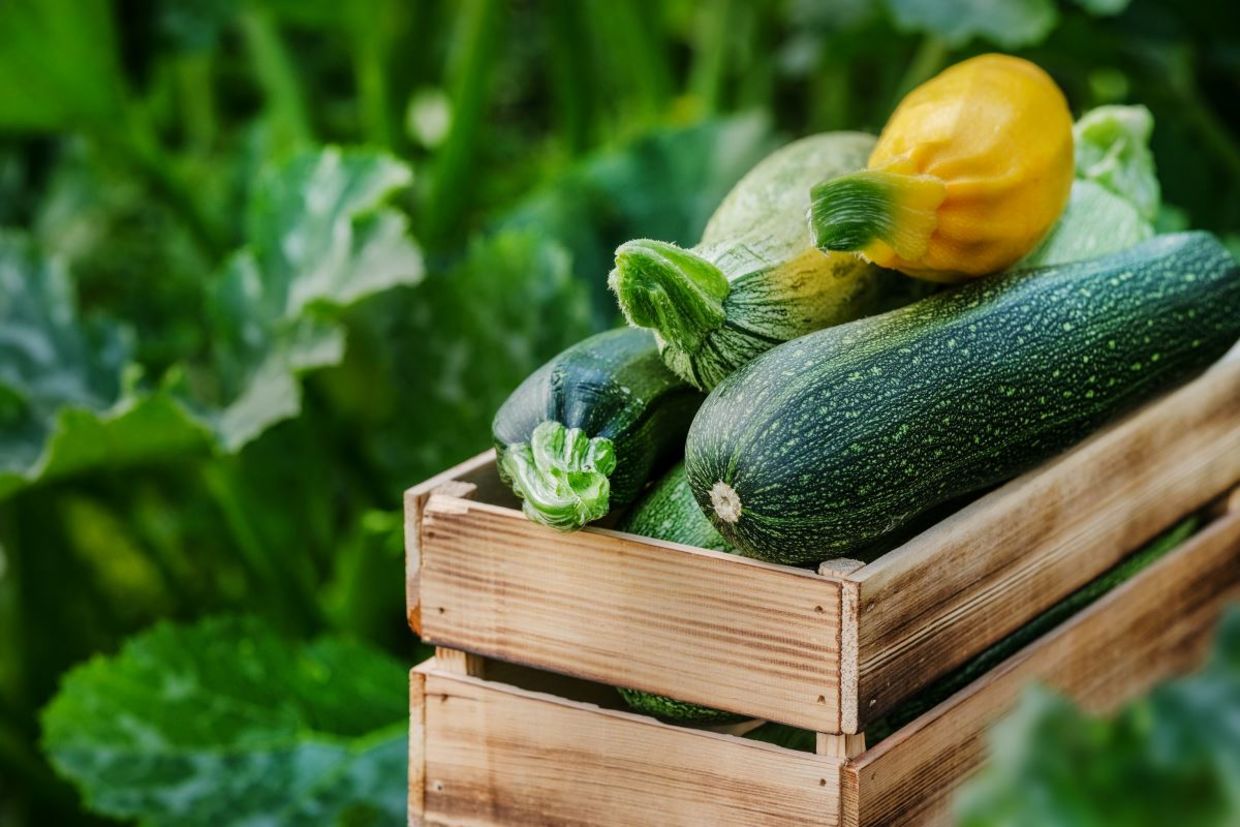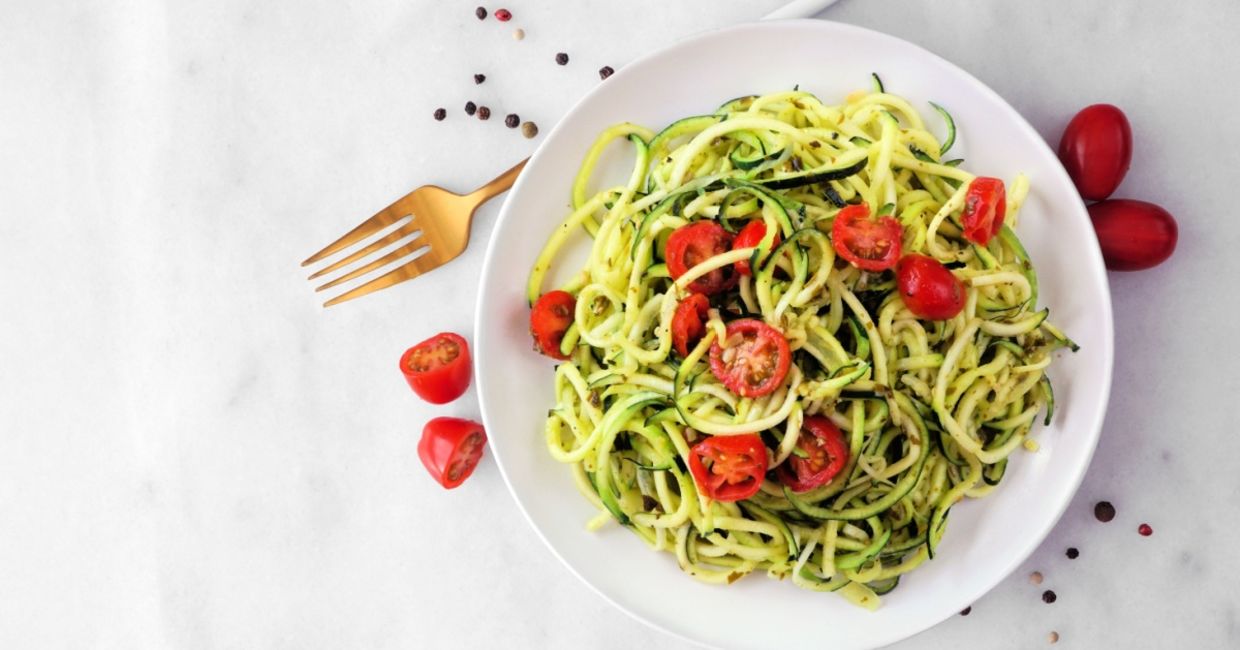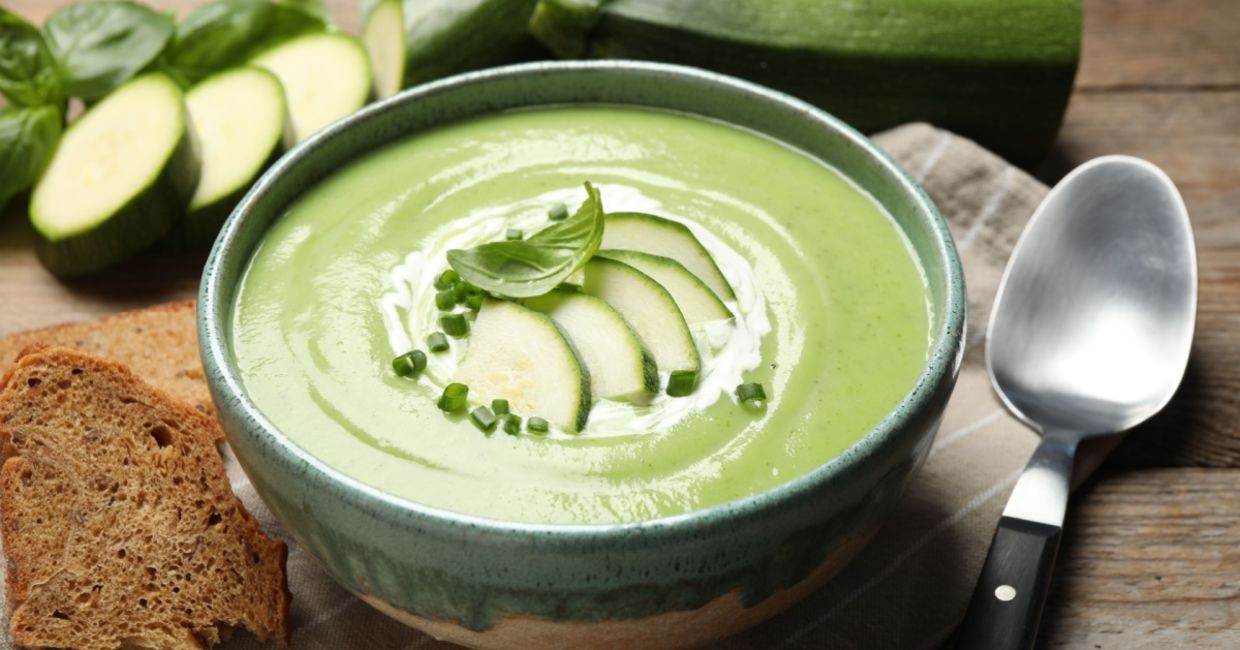
(Lelechka / Shutterstock.com)
Summer harvests bring you a bounty of healthy fruits and vegetables. Zucchini is one of summer's best. This delicious summer squash, also known as courgetti, is just bursting with nutrients and is really good for you.
Zucchini grows on vines and is usually harvested when it reaches around eight inches (20cm) and has a mild flavor that makes it a great addition to many dishes, according to Healthline. While squash originated in the Americas, zucchini was developed in Italy. But due to its versatility, this tasty vegetable – which is actually categorized as a fruit – is used in dishes around the world.
Nutrient Dense
Zucchini is rich in nutrients and contains many beneficial vitamins including 40 percent of your recommended daily intake of undefined, vitamins C, K, B6, folate and thiamine, as well as the minerals manganese, potassium, magnesium, copper, and phosphorus. This summer squash also contains fiber and beneficial antioxidants. While you can eat zucchini raw, this veggie is more nutritious when cooked.

(photosimysia / shutterstock.com)
Contains Powerful Antioxidants
Antioxidants are plant compounds that can protect your body from free radicals that can cause damage on the cellular level and could lead to chronic diseases like diabetes, heart disease, and some cancers. Zucchini contains the carotenoids beta-carotene, lutein, and zeaxanthin that are beneficial for your eyes, heart, and skin health. The most antioxidants are found in the skin so do not peel zucchini.

(OlgaBombologna / Shutterstock.com)
Promotes Heart Health
Zucchini is good for your cardiovascular health, mainly due to its high fiber content. In fact, pectin – a soluble fiber found in the vegetable – helps to reduce LDL (bad) cholesterol. In addition, the potassium and carotenoids contained in zucchini could help to reduce high blood pressure and lower the risk of heart disease and strokes.

(Koss13 / Shutterstock.com)
Good for Your Gut
According to MedicalNewsToday, zucchini helps to promote healthy digestion due to its high water content which can help keep you regular and reduce the chances of constipation due to the soluble and insoluble fiber contained in the squash. Dietary fiber can aid digestion and reduce your risk of chronic health conditions. You can pack in the fiber by eating a zucchini muffins or bread for breakfast.

(Ingrid Balabanova / Shutterstock.com)
Helps Reduce Blood Sugar Levels
Carbs turn into glucose in your body and can increase your blood sugar levels. But since zucchini is low in carbs, it can be used instead of pasta and other high carb foods. Eating a diet that is low in carbohydrates could also reduce the risk of developing type 2 diabetes.

(JeniFoto / Shutterstock.com)
Could Improve Eye Health
Zucchini could also improve your eye health due to the high amount of vitamin C and vitamin A it contains. These vitamins are antioxidants that in addition to the lutein and zeaxanthin contained in the squash could help to reduce the risk of developing age-related macular degeneration and cataracts.

(Shaiith / Shutterstock.com)
Promotes Healthy Skin
The carotenoids in zucchini have also been linked to ultraviolet ray protection, according to RealSimple, which helps to naturally protect your skin from sunburn and reduces the risk of developing skin cancer. Boosting your skin's defenses against UV damage also helps to keep your skin healthy and glowing.

(New Africa / Shutterstock.com)







